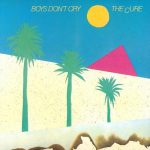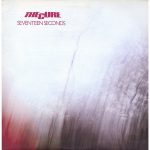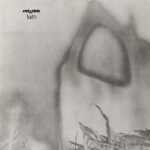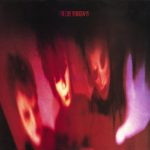The Cure
The Cure are an English rock band formed in Crawley, West Sussex in 1976. The band has experienced several line-up changes, with vocalist, guitarist and principal songwriter Robert Smith being the only constant member. Their debut single “Killing an Arab” in December 1978 on the Small Wonder label, and debut album Three Imaginary Boys in May 1979, placed the band as part of the post-punk and new wave movements that developed in the wake of the punk rock scene in the United Kingdom. During the early 1980s, the band’s increasingly dark and tormented music was a staple of the emerging gothic rock genre.
After the release of Pornography in 1982, the band’s future was uncertain. Smith was keen to move past the gloomy reputation his band had acquired, so began to place a pop sensibility into the band’s music; songs like “Let’s Go to Bed” (1982), “Just Like Heaven” (1987), “Lovesong” (1989), and “Friday I’m in Love” (1992), helped the Cure to a global success which lasted until the mid 1990s.
The band is estimated to have sold 27 million records as of 2004 and have released thirteen studio albums, ten EPs and over thirty singles during their career. The 1989 album Disintegration is regarded as the band’s commercial and critical peak.
The founding members of the Cure were school friends at Notre Dame Middle School in Crawley, West Sussex, whose first public performance was at an end-of-year show in April 1973 as members of a one-off school band called the Obelisk. That band consisted of Robert Smith on piano, Michael “Mick” Dempsey on guitar, Laurence “Lol” Tolhurst on percussion, Marc Ceccagno on lead guitar and Alan Hill on bass guitar. In January 1976 while at St. Wilfrid’s Comprehensive School Ceccagno formed a 5-piece rock band with Smith on guitar and Dempsey on bass, along with two other school friends. They called themselves Malice and rehearsed David Bowie, Jimi Hendrix and Alex Harvey songs in a local church hall. By late April 1976, Ceccagno and the other two school friends had left, and Tolhurst (drums), Martin Creasy (vocals), and Porl Thompson (guitar) had joined the band. This lineup played all three of Malice’s only documented live shows during December 1976. In January 1977, following Martin Creasy’s departure, and increasingly influenced by the emergence of punk rock, Malice’s remaining members became known as Easy Cure after a song written by drummer Laurence Tolhurst. Both Malice and Easy Cure auditioned several vocalists before Smith assumed the role of Easy Cure’s frontman in September 1977.
That year, Easy Cure won a talent competition with German label Hansa Records, and received a recording contract. Although the band recorded tracks for the company, none were ever released. Following disagreements in March 1978 over the direction the band should take, the contract with Hansa was dissolved. Smith later recalled, “We were very young. They just thought they could turn us into a teen group. They actually wanted us to do cover versions and we always refused.” Thompson was dropped from the band in May, and the remaining trio were soon renamed “the Cure” by Smith. Later that month, the band recorded their first sessions as a trio at Chestnut Studios in Sussex, which were distributed as a demo tape to a dozen major record labels. The demo found its way to Polydor Records scout Chris Parry, who signed the Cure to his newly formed Fiction label—distributed by Polydor—in September 1978. The Cure released their debut single “Killing an Arab” in December 1978 on the Small Wonder label as a stopgap until Fiction finalised distribution arrangements with Polydor. “Killing an Arab” garnered both acclaim and controversy: while the single’s provocative title led to accusations of racism, the song is actually based on French existentialist Albert Camus’s novel The Stranger. The band placed a sticker label that denied the racist connotations on the single’s 1979 reissue on Fiction. An early NME article on the band wrote that the Cure “are like a breath of fresh suburban air on the capital’s smog-ridden pub-and-club circuit”, and noted, “With a John Peel session and more extensive London gigging on their immediate agenda, it remains to be seen whether the Cure can retain their refreshing joie de vivre.”
The Cure released their debut album Three Imaginary Boys in May 1979. Because of the band’s inexperience in the studio, Parry and engineer Mike Hedges took control of the recording. The band, particularly Smith, were unhappy with the album; in a 1987 interview, he admitted, “a lot of it was very superficial – I didn’t even like it at the time. There were criticisms made that it was very lightweight, and I thought they were justified. Even when we’d made it, I wanted to do something that I thought had more substance to it”. The band’s second single, “Boys Don’t Cry”, was released in June. The Cure then embarked as the support band for Siouxsie and the Banshees’ Join Hands promotional tour of England, Northern Ireland, Scotland and Wales between August and October. The tour saw Smith pull double duty each night by performing with the Cure and as the guitarist with the Banshees when John McKay quit the group in Aberdeen. That musical experience had a strong impact on him: “On stage that first night with the Banshees, I was blown away by how powerful I felt playing that kind of music. It was so different to what we were doing with the Cure. Before that, I’d wanted us to be like the Buzzcocks or Elvis Costello; the punk Beatles. Being a Banshee really changed my attitude to what I was doing.”
The Cure’s third single, “Jumping Someone Else’s Train”, was released in early October 1979. Soon afterwards, Dempsey was dropped from the band because of his cold reception to material Smith had written for the upcoming album. Dempsey joined the Associates, while Simon Gallup (bass) and Matthieu Hartley (keyboards) from the Magspies joined the Cure. The Associates toured as support band for the Cure and the Passions on the Future Pastimes Tour of England between November and December—all three bands were on the Fiction Records roster—with the new Cure line-up already performing a number of new songs for the projected second album. Meanwhile, a spin-off band comprising Smith, Tolhurst, Dempsey, Gallup, Hartley and Thompson, with backing vocals from assorted family and friends and lead vocals provided by their local postman Frankie Bell, released a 7-inch single in December under the assumed name of Cult Hero.
Due to the band’s lack of creative control on the first album, Smith exerted a greater influence on the recording of the Cure’s second album Seventeen Seconds, which he co-produced with Mike Hedges. The album was released in 1980 and reached number 20 on the UK charts. A single from the album, “A Forest”, became the band’s first UK hit single, reaching number 31 on the singles chart. The album was a departure from the Cure’s sound up to that point, with Hedges describing it as “morose, atmospheric, very different to Three Imaginary Boys.” In its review of Seventeen Seconds the NME said, “For a group as young as the Cure, it seems amazing that they have covered so much territory in such a brief time.” At the same time, Smith was pressed concerning the concept of an alleged “anti-image”. Smith told the press he was fed up with the anti-image association that some considered to be “elaborately disguising their plainness”, stating, “We had to get away from that anti-image thing, which we didn’t even create in the first place. And it seemed like we were trying to be more obscure. We just didn’t like the standard rock thing. The whole thing really got out of hand.” That same year Three Imaginary Boys was repackaged for the American market as Boys Don’t Cry, with new artwork and a modified track list. The Cure set out on their first world tour to promote both releases. At the end of the tour, Matthieu Hartley left the band. Hartley said, “I realised that the group was heading towards suicidal, sombre music—the sort of thing that didn’t interest me at all.”
The band reconvened with Hedges to produce their third album, Faith (1981), which furthered the dour mood present on Seventeen Seconds. The album peaked at number 14 on the UK charts. Included with cassette copies of Faith was an instrumental soundtrack for Carnage Visors, an animated film shown in place of an opening act for the band’s 1981 Picture Tour. In late 1981, the Cure released the non-album single “Charlotte Sometimes”. By this point, the sombre mood of the music had a profound effect on the attitude of the band. The band would refuse requests for older songs in concert, and sometimes Smith would be so absorbed by the persona he projected onstage he would leave at the end in tears.
In 1982, the Cure recorded and released Pornography, the third and final album of an “oppressively dispirited” trio that cemented the Cure’s stature as purveyors of the emerging gothic rock genre. Smith has said that during the recording of Pornography he was “undergoing a lot of mental stress. But it had nothing to do with the group, it just had to do with what I was like, my age and things. I think I got to my worst round about Pornography. Looking back and getting other people’s opinions of what went on, I was a pretty monstrous sort of person at that time”. Gallup described the album by saying, “Nihilism took over We sang ‘It doesn’t matter if we all die’ and that is exactly what we thought at the time.” Parry was concerned that the album did not have a hit song for radio play and instructed Smith and producer Phil Thornalley to polish the track “The Hanging Garden” for release as a single. Despite the concerns about the album’s uncommercial sound, Pornography became the band’s first UK Top 10 album, charting at number eight. The release of Pornography was followed by the Fourteen Explicit Moments tour, where the band finally dropped the anti-image angle and first adopted their signature look of big, towering hair and smeared lipstick on their faces. The tour also saw a series of incidents that prompted Simon Gallup to leave the Cure at the tour’s conclusion. Gallup and Smith did not talk to each other for eighteen months following his departure.




